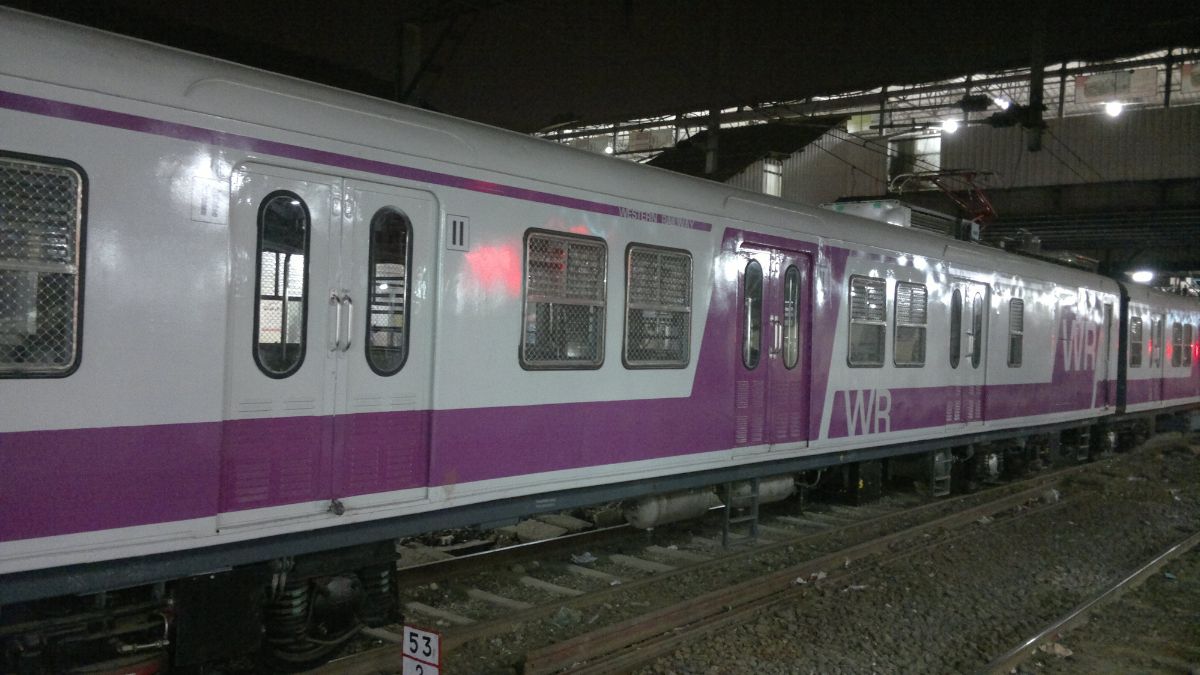Western Railway (WR) is set to convert one of the luggage compartments in each of its local trains into a dedicated space for senior citizens. This initiative, which follows a directive from the Bombay High Court, seeks to address the challenges faced by approximately 50,000 senior citizens who rely on Mumbai’s local train services daily.
The decision to reserve a luggage compartment for senior citizens comes in response to a public interest litigation filed by a 66-year-old lawyer and retired judge’s secretary. The petitioner highlighted the difficulties elderly passengers encounter during peak hours, including overcrowded general compartments and limited seating options. The Bombay High Court, upon reviewing the petition, directed the Railway Board to consider the feasibility of converting a luggage compartment into a dedicated space for senior citizens. An affidavit submitted by Western Railway officials revealed that each local train comprises 12 to 15 coaches, with three to four luggage compartments. These compartments, originally designed for carrying goods, are underutilised, with general commuters occupying nearly 90% of the space. In contrast, the general class compartments, which occupy 71% of the train area, accommodate 90% of the passengers. This disparity underscores the potential to repurpose one luggage compartment without disrupting existing services.
The Railway Board has approved the proposal to modify the seventh coach from the Churchgate end in its fleet of 110 non-air-conditioned trains. This ‘Senior Citizens’ compartment will be equipped with 14 seats, exclusively reserved for elderly passengers. The modifications are expected to cost approximately ₹5.4 crore. The conversion process will be carried out gradually across the fleet, with completion anticipated within two years. During this period, senior citizens will continue to have access to the existing reserved seats in the general compartments. This initiative aligns with the Bombay High Court’s earlier directives, which mandated the reservation of 14 seats for senior citizens in every local train. The court had observed that the limited seating often led to younger passengers occupying these spaces, thereby depriving elderly commuters of designated seating. The conversion of luggage compartments into dedicated senior citizens’ spaces is seen as a progressive step towards inclusive urban mobility. It reflects a growing recognition of the need to cater to the specific requirements of elderly passengers, ensuring their safety and dignity during travel.
While the plan has been met with approval, its successful implementation will depend on several factors, including the coordination between various railway divisions, timely procurement of necessary materials, and effective communication with commuters. Additionally, the initiative’s impact on overall train capacity and scheduling will need to be carefully managed to prevent any adverse effects on the general passenger services. In conclusion, Western Railway’s decision to introduce dedicated compartments for senior citizens marks a commendable effort towards making public transport more inclusive and accessible. As the project progresses, it is hoped that other regions will adopt similar measures, fostering a more equitable transportation system for all citizens.
Also Read :Indian Railways Tests Advanced Reservation System in Bikaner


